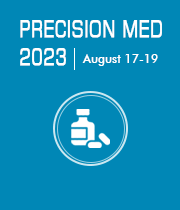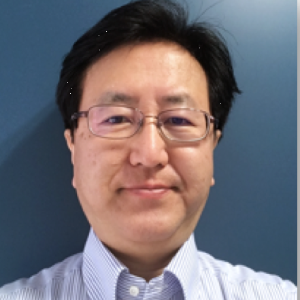Title: Genome editing for precision medicine: Revolutionizing medicine
Abstract:
Precision medicine refers to personalized medicine that provides medical care tailored to the individual based on his or her individual constitution. One of the promising tools is genome editing with CRISPR-Cas system, which enables modification of specific genes in an individual's genome. In this presentation, we will explore the potential of precision medicine through genome editing, focusing on its applications, benefits, and ethical considerations. We will also introduce One-SHOT, an allele-specific single nucleotide substitution method we have developed, and discuss its limitations and future prospects. Application of Genome Editing in Precision Medicine. Genome editing has the potential to revolutionize the treatment of various genetic diseases. By using genome editing tools to precisely modify genetic information, scientists can correct or eliminate disease-causing mutations. This approach is effective for diseases in which a single genetic mutation is the primary cause, such as sickle cell disease, cystic fibrosis, and muscular dystrophy. In addition, genome editing can be used in cancers where specific genetic mutations promote tumor cell growth, as a targeted therapy for cancer. Advantages of Precision Medicine through Genome Editin Precision medicine through genome editing has a clear advantage over conventional methods. It treats the genetic mutation that causes a specific disease at the genome level, thus enabling a fundamental cure. By applying this method to tissue stem cells, genomic medicine at the somatic cell level can be realized. Application of this method to germ cells will prevent the transmission of genetic diseases to offspring, which was not possible with the conventional method, and consequently eradicate genetic diseases from future generations. Ethical Considerations Ethical issues must always be considered regarding the application of genome editing in human cells. One such issue is the potential for genetic modification to have unintended and unknown effects on an individual's health. Furthermore, in the case of germline applications, a serious ethical dilemma arises. This is because there is concern that slight off-target effects could have potential, long-term effects on the gene pool. Therefore, clear guidelines and regulations for the use of this technology are needed before it can be operationalized as a formal therapy. Challenges and Future Prospects There are several technical challenges that need to be solved to realize precision medicine through genome editing. The first is that the performance of editing tools is still insufficient. Careful design and functional confirmation of the guide sequence is necessary to prevent off-target effects because of its insufficient target discrimination ability of the guide sequence of CRISPR-Cas, as we have reported in the One-SHOT. Second is the efficient delivery of genome editing tools to target cells. Researchers are actively exploring various delivery methods, such as viral vectors and nanoparticles, to optimize the efficiency of gene editing. Looking ahead, precision medicine through genome editing has great potential to transform healthcare. Continued refinement and development of gene editing technologies will pave the way for personalized therapies that will improve patient quality of life and reduce the burden of hereditary diseases.
Audience Take Away Notes :
- The audience will learn briefly about the issues to be considered in Precision Medicine through genome editing.
- This presentation will provide information on the principle and overview of One-SHOT, an allele-specific single nucleotide substitution method invented by the author, which will be useful for the audience's research.
- This presentation will provide information on simple screening methods to identify edits.
- This presentation will provide information on the design of editing tools to improve the accuracy of genome editing.


